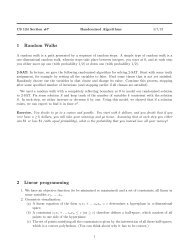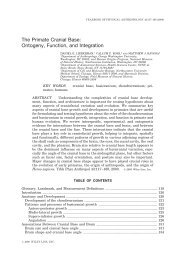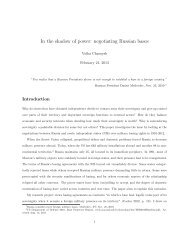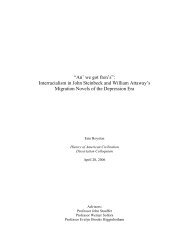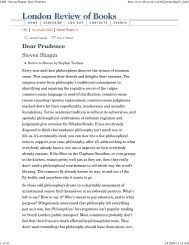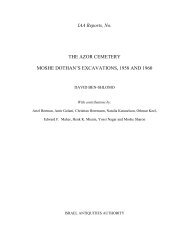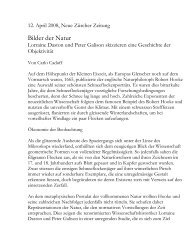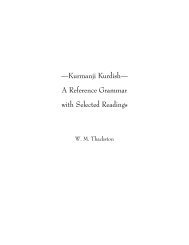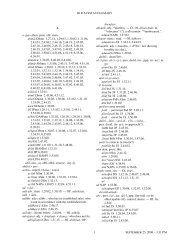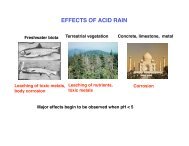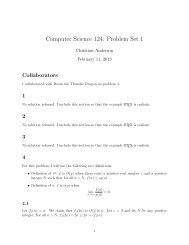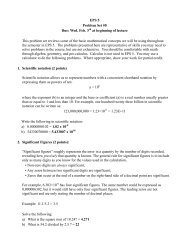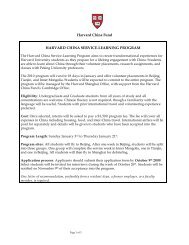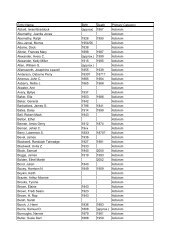—Kurmanji Kurdish— A Reference Grammar with Selected Readings
—Kurmanji Kurdish— A Reference Grammar with Selected Readings
—Kurmanji Kurdish— A Reference Grammar with Selected Readings
You also want an ePaper? Increase the reach of your titles
YUMPU automatically turns print PDFs into web optimized ePapers that Google loves.
tu bíhatibûya hun bíhatibûna te bídîtibûya we bídîtibûya<br />
ew bíhatibûya ew bíhatibûna wî bídîtibûya wan bídîtibûya<br />
ez néhatibûma em néhatibûna min nédîtibûya me nédîtibûya<br />
tu néhatibûya hun néhatibûna te nédîtibûya we nédîtibûya<br />
ew néhatibûya ew néhatibûna wî nédîtibûya wan nédîtibûya<br />
(2) The second past conditional is formed by prefixing the subjunctive bíor<br />
né- and substituting ba- in place of bû in the past perfect.<br />
INTRANSITIVE ERGATIVE<br />
ez bíhatibam em bíhatiban min bídîtiba me bídîtiba<br />
tu bíhatibayî hun bíhatiban te bídîtiba we bídîtiba<br />
ew bíhatiba ew bíhatiban wî bídîtiba wan bídîtiba<br />
ez néhatibam em néhatiban min nédîtiba me nédîtiba<br />
tu néhatibayî hun néhatiban te nédîtiba we nédîtiba<br />
ew néhatiba ew néhatiban wî nédîtiba wan nédîtiba<br />
The past conditional mood is used in the following instances:<br />
(1) In past contrafactual conditional sentences, the verb of the protasis<br />
(the “if” clause) is in the past perfect conditional mood (<strong>with</strong> or <strong>with</strong>out<br />
bi-), and the verb of the apodosis (the result clause) is in either the past perfect<br />
conditional or the future perfect conditional. When either part of a past<br />
contrafactual conditional contains the verb bûn, it is in the past conditional,<br />
not the past perfect conditional. When the apodosis contains the verb karîn,<br />
it is usually in the future perfect conditional.<br />
Ma eger Aristo ne yunanî, lê çînî bûya,<br />
wê bikaribûya felsefa xwe pêk bîne?<br />
Mewlana eger ne parsî, lê meselen bi<br />
tirkî nivîsandibûya, ma wê bikarîbûya<br />
Mesnewî biafirîne?<br />
Ger ez neçûbûma Dêrikê, min Girê<br />
Tûrcelê nedîtiba.<br />
KURMANJI KURDISH<br />
64<br />
If Aristotle had been not Greek but<br />
Chinese, would he have been able to<br />
put his philosophy together?<br />
If Mevlana had written not in Persian<br />
but, for instance, in Turkish, he<br />
wouldn’t have been able to create the<br />
Masnavi, would he?<br />
If I hadn’t gone to Dêrik, I wouldn’t<br />
have seen Turjel Hill.



